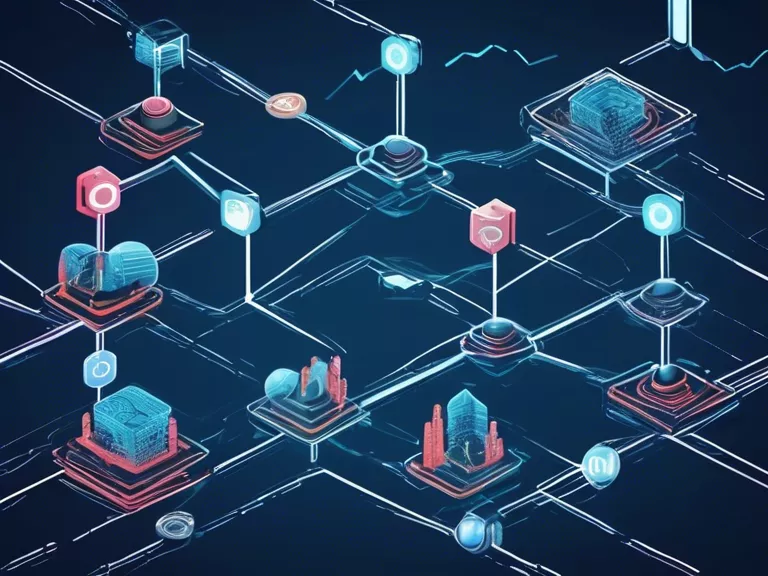
Introduction
Blockchain technology has revolutionized the way we think about data storage, security, and transactions. In today's digital age, understanding the on-chain landscape and blockchain's influence is crucial for businesses and individuals looking to harness the full potential of this disruptive technology.
What is Blockchain?
At its core, a blockchain is a decentralized, distributed ledger that records transactions across a network of computers. Each transaction is added to a "block" of data, which is then linked to the previous block, creating a chain of information. This chain is secure, transparent, and immutable, making it an ideal platform for a wide range of applications beyond just cryptocurrencies.
The Influence of Blockchain
Transparency and Security
One of the key benefits of blockchain technology is its transparency and security. Each transaction is verified by multiple nodes in the network, making it nearly impossible to alter or delete data once it has been recorded. This level of security is invaluable for industries such as finance, healthcare, and supply chain management, where data integrity is paramount.
Decentralization
Blockchain technology eliminates the need for a central authority to oversee transactions, instead relying on a network of nodes to validate and record data. This decentralization not only reduces the risk of fraud and manipulation but also promotes inclusivity and accessibility, allowing individuals and businesses of all sizes to participate in the network.
Smart Contracts
Smart contracts are self-executing contracts with the terms of the agreement directly written into code. These contracts automatically enforce the agreed-upon terms, eliminating the need for intermediaries and streamlining processes. Smart contracts have the potential to revolutionize industries such as real estate, legal, and supply chain management by automating complex transactions and reducing costs.
Tokenization
Tokenization involves converting real-world assets into digital tokens that can be traded on a blockchain. This process enables fractional ownership, increased liquidity, and faster settlement times for a wide range of assets, including real estate, art, and commodities. Tokenization has the potential to democratize access to investments and unlock new sources of value in traditional markets.
Navigating the On-Chain Landscape
Choosing the Right Blockchain Platform
With a myriad of blockchain platforms available, selecting the right one for your use case is crucial. Factors to consider include scalability, security, governance, and interoperability with existing systems. Popular blockchain platforms such as Ethereum, Binance Smart Chain, and Solana offer unique features and capabilities tailored to different applications.
Regulatory Considerations
As blockchain technology continues to evolve, regulatory frameworks are also evolving to address the unique challenges and opportunities presented by decentralized networks. Understanding the regulatory landscape in your jurisdiction is essential to ensure compliance and mitigate risks when deploying blockchain solutions.
Education and Collaboration
Navigating the on-chain landscape requires continuous learning and collaboration with industry experts and peers. Stay informed about the latest developments in blockchain technology, attend conferences and workshops, and join online communities to exchange ideas and best practices. Building a network of like-minded individuals can provide valuable insights and opportunities for growth in the blockchain space.
Conclusion
Blockchain technology is reshaping industries and revolutionizing the way we transact and interact with data. By understanding the on-chain landscape and blockchain's influence, businesses and individuals can leverage this transformative technology to drive innovation, efficiency, and transparency in a rapidly evolving digital economy. Stay informed, stay connected, and embrace the possibilities of blockchain for a brighter, decentralized future.